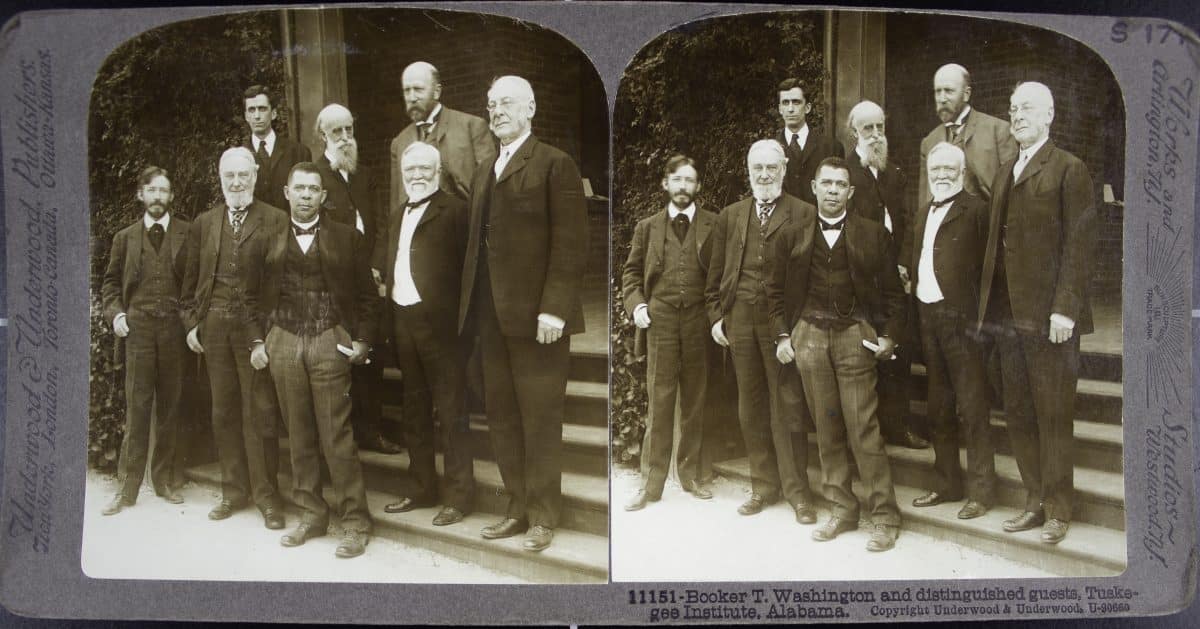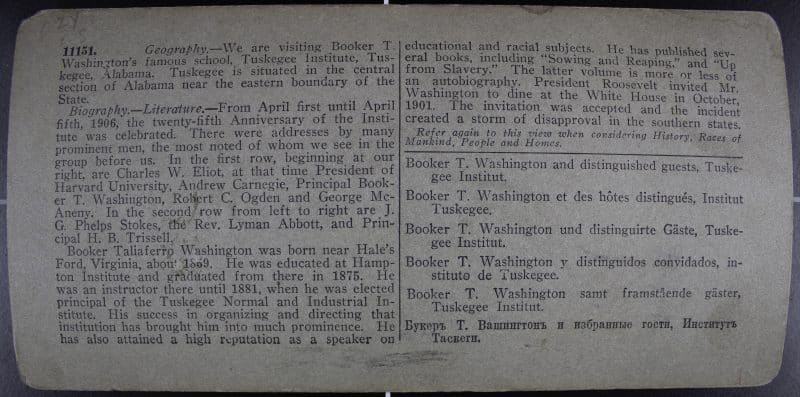A stereoview depicting African-American educator and Civil Rights figure, Booker T. Washington, at the Tuskegee Institute with several notable figures, including Andrew Carnegie. The caption reads: “11151- Booker T. Washington and distinguished guests, Tuskegee Institute, Alabama. Copyright Underwood & Underwood”
Left margin says: ‘Underwood & Underwood. Publishers. New York, London, Toronto-Canada, Ottawa-Kansas” The right hand margin says: “S 171 Works and Studios Arlington N.J. Westwood N.J.”
The back has extensive information: “11151-Geography.–We are visiting Booker T. Washington’s famous school, Tuskegee Institute, Alabama. Tuskegee is situated in the central section of Alabama near the eastern boundary of the state.
Biography.–Literature.–From April first to April fifth, 1906, the twenty-fifth anniversary of the Institute was celebrated. There were addresses by many prominent men, the most noted we see in the group before us. In the first row, beginning at our right, are Charles W. Eliot, at that time President of Harvard University, Andrew Carnegie, Principal Booker T. Washington, Robert C. Ogden and George McAneny. In the second row from left to right are J. G. Phelps Stokes, the Rev. Lyman Abbott, and Principal H. B. Trissell.
Booker Taliaferro Washington was born near Hale’s Ford, Virginia, about 1859. He was educated at Hampton Institute and graduated from there in 1875. He was an instructor there until 1881, when he was elected principal of the Tuskegee Normal and Industrial Institute. His success in organizing and directing that institution has brought him into much prominence. He has also attained a high reputation as a speaker on educational and racial subjects. He has published several books, including “Sowing and Reaping,” and “Up from Slavery.” The latter volume is more or less of an autobiography. President Roosevelt invited Mr. Washington to dine at the White House in October, 1901. The invitation was accepted and the incident created a storm of disapproval in the southern states. Refer again to this view when considering History, Races of Mankind, People and Homes.”
It concludes with “Booker T. Washington and distinguished guests, Tuskegee Institute” which is repeated in five different languages.


